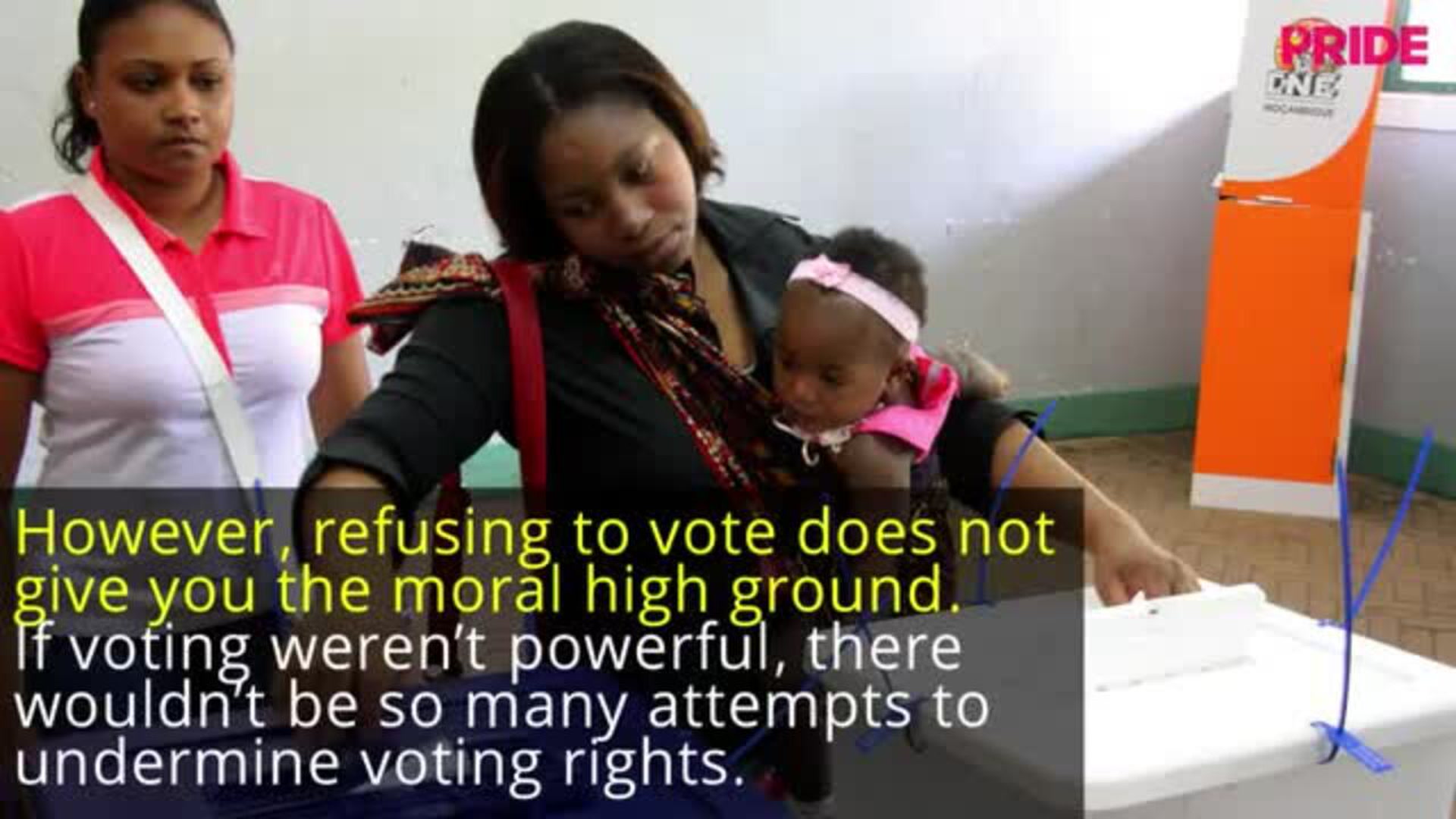FirstPerson
Apathy About Voting Doesn't Give You the Moral High Ground

If you’re holding out for the perfect candidate, you’re never going to vote.
October 18 2016 12:32 PM EST
December 09 2022 9:12 AM EST
By continuing to use our site, you agree to our Private Policy and Terms of Use.

If you’re holding out for the perfect candidate, you’re never going to vote.
I come from a family of enthusiastic voters. My grandma sees voting as something that should never be taken for granted—as a great privilege, not a right, that we could lose if we’re not vigilant. She organizes for local elections and she would enlist my sister and me when she needed to go door to door to pass out political pamphlets.
My parents vote in every election—national and local—and seem to anticipate the results of the presidential election with the same amount of excitement as the results for diverting additional funding to the local school district.
I can’t count the number of times my dad has said, "If you don’t vote, you can’t complain,"—a fate that would be unfathomable to him since he loves to trash talk any elected official he deems incompetent, whether they’re on the school board or in the Senate.
I inherited that excitement. But my excitement about voting doesn’t give me the moral high ground.
I started writing this a half dozen different ways. With an anecdote about my first time voting on an absentee ballot. With a conversation I had with my grandma about Barry Goldwater. By addressing it as a letter to those apathetic about voting in this election. By outlining the dangers of a Trump presidency. By outlining the advantages of electing Clinton. With statistics about voter turnout and facts about suffrage in the United States.
When I started writing, I was coming from the position that voting was the morally right thing to do. Every experience in my life has reinforced that belief.
But I’ve seen enough Facebook posts and tweets from my peers to know that not everyone feels that way. I’ve seen posts condemning anyone voting for Hillary Clinton because she’s "just as evil as Trump." I’ve seen posts that encourage others to write in Bernie’s name, despite his insistence that his supporters throw their weight behind Hillary. I’ve seen people write that they’re not voting at all—that they can’t, in good conscience, support anyone on the ballot.
The last kind of post is the most frustrating for me to read. "Congratulations," I want to reply. "You win. You’re the most progressive/most anarchist/most intelligent person in the world. You’ve seen through this sham we call 'democracy.'" But what good would that do?
At this point in the election, is it possible to convince someone who truly believes Hillary Clinton is just as bad as Donald Trump that their policies, their ability, and the impact their respective presidencies would have are radically different? Is it possible to convince a disaffected Bernie voter that the candidate we voted for in the primaries ultimately lost because the majority of voters didn’t believe he was the best candidate, and that’s how democracy works? Is it possible to convince people who grudgingly say they might back a third-party candidate that a man who can’t name a single foreign leader he admires and a woman who can’t definitively say that vaccines don’t cause autism despite overwhelming scientific evidence are not fit to lead a country?
I feel myself climbing up on my high horse again. I remind myself: I am excited about voting because I find the act of voting exciting. That’s not true for everyone.
My dad wasn’t excited when George W. Bush was elected president, or when Hillary ran against Obama. He’s a pull himself up by his bootstraps kind of guy, and he hates the idea of political dynasties. He wants our government to remain a meritocracy. (I don’t think we’ve ever been a meritocracy—but that’s not really the point.) He’s not as excited about his options as he has been in past elections, but he’s still voting. He’s voting for the candidate he thinks will be the safest choice, who shares some of his values, and who will do the least harm.
Part of what frustrates me about refusing to vote because you believe a vote for either candidate would be immoral is the idea that lurks behind it: we should hold out for a candidate who shares all of our values, who would make all the same choices we would, and who has never said or done anything we disagree with. The only people who have ever voted for a candidate like that are elected officials who voted for themselves.
I can’t make other people more excited to vote. I can only say what I think and hope it resonates. Refusing to vote doesn’t mean bucking the system. If voting weren't powerful, there wouldn’t be so many attempts to undermine voting rights. Voting for someone doesn’t mean you agree with everything they say or do. Whether you vote or not, you have to live with the results of the election.
Most importantly, if you don’t vote, you can’t complain. And you know that if you’re still apathetic about voting at this point in the race, you’re going to want to complain.
